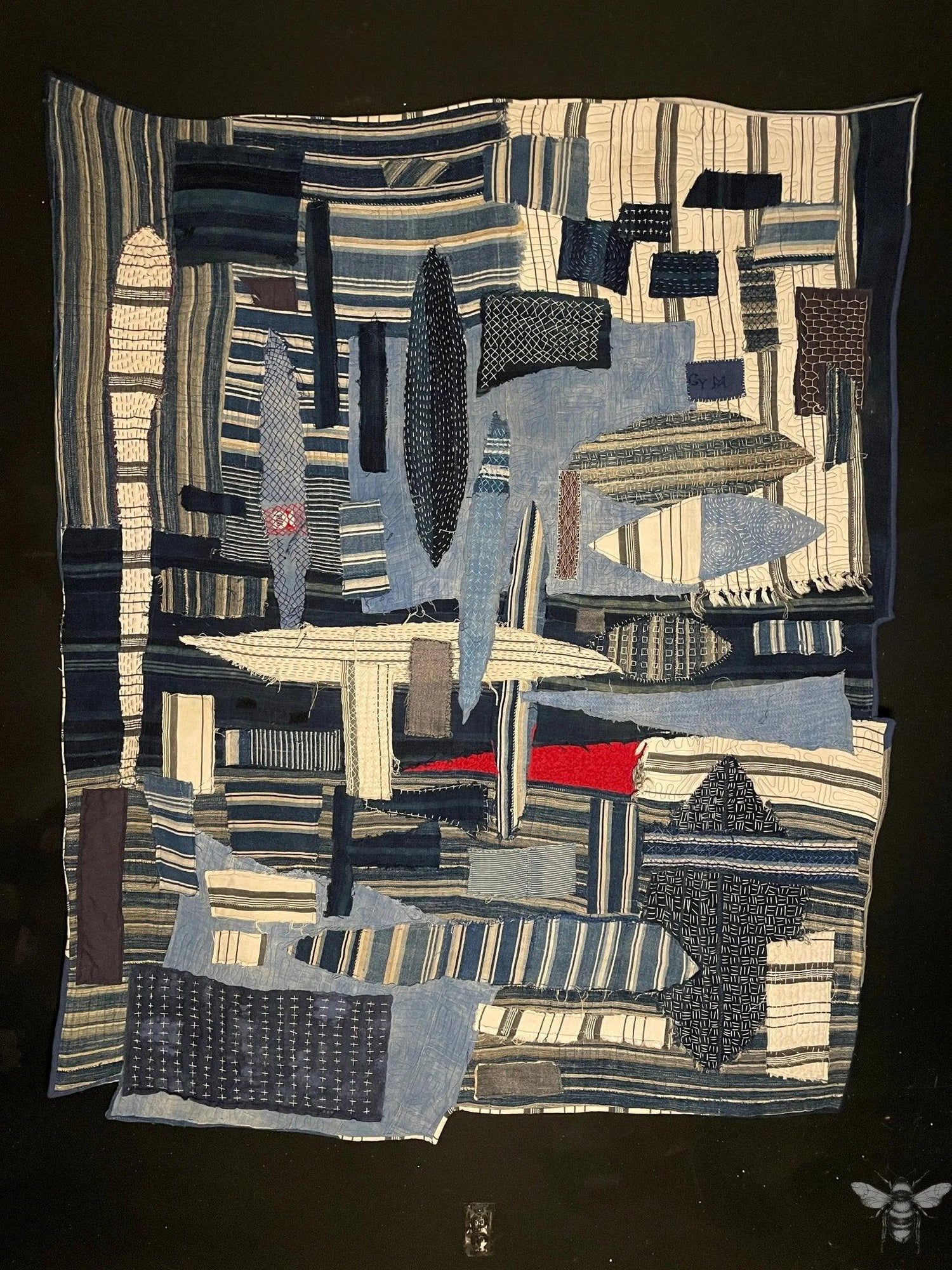
Legal Obligations for Quilt Guilds to Accommodate Disabilities in Ontario
In Ontario, Canada, Quilting Guilds have a duty to inquire about accommodation needs for disabilities, as outlined by the Human Rights Tribunal of Ontario. The duty to inquire is an essential component of the duty to accommodate, which is a legal obligation to ensure that individuals with disabilities have equal access to opportunities, goods, and services.
Under the Ontario Human Rights Code, disability is defined broadly and includes physical, sensory, and mental disabilities. The duty to accommodate requires that organizations take steps to identify and eliminate barriers that prevent people with disabilities from participating fully in society. This includes accommodations such as providing accessible facilities, modifying work hours or duties, or providing alternative communication methods.
The duty to inquire requires organizations, including quilting guilds, to take proactive steps to identify and address accommodation needs. Organizations must ensure that they have the necessary information to determine whether an accommodation is needed and, if so, what kind of accommodation is required. This means that organizations must actively seek out information about the needs of individuals with disabilities and engage in an interactive process to identify and implement appropriate accommodations.
Quilting guilds may have to accommodate members with disabilities in a variety of ways. For example, they may need to provide accessible meeting spaces or ensure that written materials are available in accessible formats. They may also need to modify quilting equipment or processes to ensure that they are accessible to individuals with disabilities.
It is important to note that the duty to inquire is an ongoing obligation. Organizations must continue to monitor the needs of individuals with disabilities and ensure that their accommodation needs are met. This means that organizations must be flexible and responsive to changing circumstances and new accommodation requests.
In summary, the duty to inquire is an important aspect of the duty to accommodate individuals with disabilities in Ontario. Quilting guilds, like all organizations, have a legal obligation to actively seek out and address accommodation needs to ensure that individuals with disabilities have equal access to opportunities, goods, and services. By fulfilling this obligation, quilting guilds can help create a more inclusive and accessible community for all.
In Ontario, Canada, quilt guilds have a legal obligation to accommodate members with disabilities and to inquire about their accommodation needs. However, there are limits to the information that can be requested in the accommodation process.
According to the Ontario Human Rights Code, it is generally not permissible to ask about a person's disability or medical condition unless it is necessary to provide an accommodation. In other words, an organization may only ask about a specific disability or medical condition if it is directly relevant to the accommodation being requested.
For example, if a member with a visual impairment requests a large print copy of the guild's newsletter, it may be necessary to inquire about the nature of their vision loss to ensure that the print size is appropriate. However, it would not be appropriate to ask about other medical conditions or disabilities that are not relevant to the accommodation request.
It is also important to note that any information collected about a member's disability must be kept confidential and only shared with those who need to know in order to provide the accommodation. This includes keeping any medical information separate from other membership records and ensuring that only designated individuals have access to it.
It is possible for quilt guilds to inadvertently violate the Ontario Human Rights Code by asking about specific disabilities when it is not necessary to do so. As a result, it is important for quilt guilds to be aware of the limits of what information can be requested and to ensure that any information collected is kept confidential and only used for the purpose of providing accommodations.
In summary, quilt guilds in Ontario have a legal obligation to accommodate members with disabilities and to inquire about their accommodation needs. While it may be necessary to ask about a specific disability or medical condition in some cases, this should only be done when it is directly relevant to the accommodation being requested. Any information collected must be kept confidential and only shared with those who need to know in order to provide the accommodation.
In Ontario, Canada, quilt guilds have a legal obligation to accommodate members with disabilities and to inquire about their accommodation needs. However, there are limits to the information that can be requested in the accommodation process. In some cases, it may be appropriate for a quilt guild to request a letter of accommodation rather than asking for the nature of the disability.
A letter of accommodation is a document that is provided by a healthcare provider or other qualified professional that confirms that an individual has a disability and outlines the accommodations that are required. This can help to protect the privacy of the individual with the disability while still providing the quilt guild with the necessary information to provide accommodations.
If a quilt guild receives a request for an accommodation, they can ask the individual to provide a letter of accommodation. The request should be made in writing and should clearly outline the specific accommodations that are required. The request should also explain that the purpose of the letter of accommodation is to provide the necessary information to ensure that appropriate accommodations can be provided, while still protecting the privacy of the individual with the disability.
It is important to note that the cost of obtaining a letter of accommodation should not be borne by the individual with the disability. The quilt guild should cover the cost of obtaining the letter of accommodation, and should not require the individual to pay for it themselves.
In summary, quilt guilds in Ontario have a legal obligation to accommodate members with disabilities and to inquire about their accommodation needs. If a quilt guild is unsure about how to provide an accommodation or what accommodations are required, they can request a letter of accommodation from the individual with the disability. This can help to protect the privacy of the individual while still providing the necessary information to ensure that appropriate accommodations are provided.
In Ontario, Canada, the concept of "undue hardship" is an important consideration when it comes to accommodating individuals with disabilities. Under the Ontario Human Rights Code, organizations are required to provide reasonable accommodations to individuals with disabilities, unless doing so would cause undue hardship.
Undue hardship is defined as an "excessive or unreasonable cost" or a "serious disruption" to the normal operation of the organization. The assessment of whether an accommodation would cause undue hardship involves a consideration of various factors, including the nature and cost of the accommodation, the financial resources of the organization, and the overall impact of the accommodation on the organization.
In general, it is up to the organization to demonstrate that providing the accommodation would cause undue hardship. The Ontario Human Rights Commission has provided guidance on what constitutes undue hardship in various situations. For example, in the case of physical modifications to a building, undue hardship might be found if the cost of the modifications is so high that it would threaten the financial viability of the organization. In the case of providing additional staffing support to accommodate an employee with a disability, undue hardship might be found if the additional staffing would cause serious disruption to the organization's normal operations.
It is important to note that the concept of undue hardship is not a blanket exemption from the duty to accommodate. Organizations are still required to make reasonable accommodations to the point of undue hardship, and the assessment of what constitutes undue hardship is made on a case-by-case basis.
In summary, undue hardship is a key consideration when it comes to accommodating individuals with disabilities in Ontario. Organizations are required to provide reasonable accommodations to individuals with disabilities, unless doing so would cause undue hardship. The assessment of whether an accommodation would cause undue hardship involves a consideration of various factors, including the nature and cost of the accommodation, the financial resources of the organization, and the overall impact of the accommodation on the organization. The concept of undue hardship is not a blanket exemption from the duty to accommodate, and the assessment of what constitutes undue hardship is made on a case-by-case basis.
Under the Ontario Human Rights Code, organizations are required to provide reasonable accommodations to individuals with disabilities, even if the individual is not aware that they have a disability. This obligation includes a duty to accommodate individuals who do not know that they have a disability, but who require an accommodation in order to access services or participate in activities.
For example, if an individual has difficulty reading or understanding written materials due to an undiagnosed learning disability, an organization may be required to provide accommodations such as verbal instruction or audio materials to ensure that the individual can access the information. Similarly, if an individual experiences anxiety or other symptoms that affect their ability to participate in social activities or events, an organization may be required to provide accommodations such as a quieter space or reduced stimulation to support their participation.
It is also important to note that once an accommodation has been provided, it cannot be taken away without justification. This means that if an accommodation has been put in place for a particular individual, it cannot be removed simply because it is no longer convenient or cost-effective for the organization. For example, if an organization has shifted to online meetings or events due to COVID-19 and has provided accommodations such as captioning or ASL interpretation, they cannot simply remove these accommodations once in-person events resume.
If an organization determines that an accommodation is no longer necessary or appropriate, they must engage in an individualized assessment of the situation to determine whether the accommodation can be modified or removed. This assessment should take into account the individual's needs, the impact of the accommodation on the organization, and any alternatives that may be available.
In summary, Ontario organizations have a legal obligation to provide reasonable accommodations to individuals with disabilities, even if the individual is not aware that they have a disability. Once an accommodation has been provided, it cannot be taken away without justification. Organizations must engage in an individualized assessment of the situation to determine whether modifications or removal of the accommodation are appropriate.
Undue hardship for a quilt guild may look different than for other organizations, as it will depend on the size and nature of the guild, as well as the accommodation being requested. Some examples of what undue hardship may look like for a quilt guild include:
-
High cost: If a member requests an accommodation that would require a significant financial investment, such as purchasing specialized equipment or hiring additional staff, and the cost of the accommodation would create a significant financial burden on the guild, it may be considered undue hardship.
-
Disruption to operations: If an accommodation would significantly disrupt the normal operation of the guild, it may be considered undue hardship. For example, if a member requests a change to the schedule or format of a guild meeting or event, and the change would make it difficult or impossible for other members to participate or would require a significant reorganization of the event, it may be considered undue hardship.
-
Safety risks: If an accommodation would create a safety risk for the individual with a disability or for other members of the guild, it may be considered undue hardship. For example, if a member requests an accommodation that involves the use of hazardous materials or equipment, and the accommodation would create a risk of injury or harm to themselves or others, it may be considered undue hardship.
-
Fundamental changes to the nature of the guild: If an accommodation would require a fundamental change to the nature of the guild or the services it provides, it may be considered undue hardship. For example, if a member requests an accommodation that would require the guild to provide specialized services or training that are not typically provided, and the accommodation would fundamentally change the nature of the guild's activities, it may be considered undue hardship.
It is important for quilt guilds to carefully consider each accommodation request individually, taking into account all relevant factors and making every effort to provide reasonable accommodations where possible. Quilt guilds should also be aware that they have a legal duty to accommodate to the point of undue hardship, meaning that they must make every effort to provide accommodations that are reasonable and feasible, even if they may cause some inconvenience or expense for the guild.
Comments
Check out comments or add a new one.



